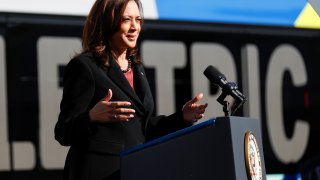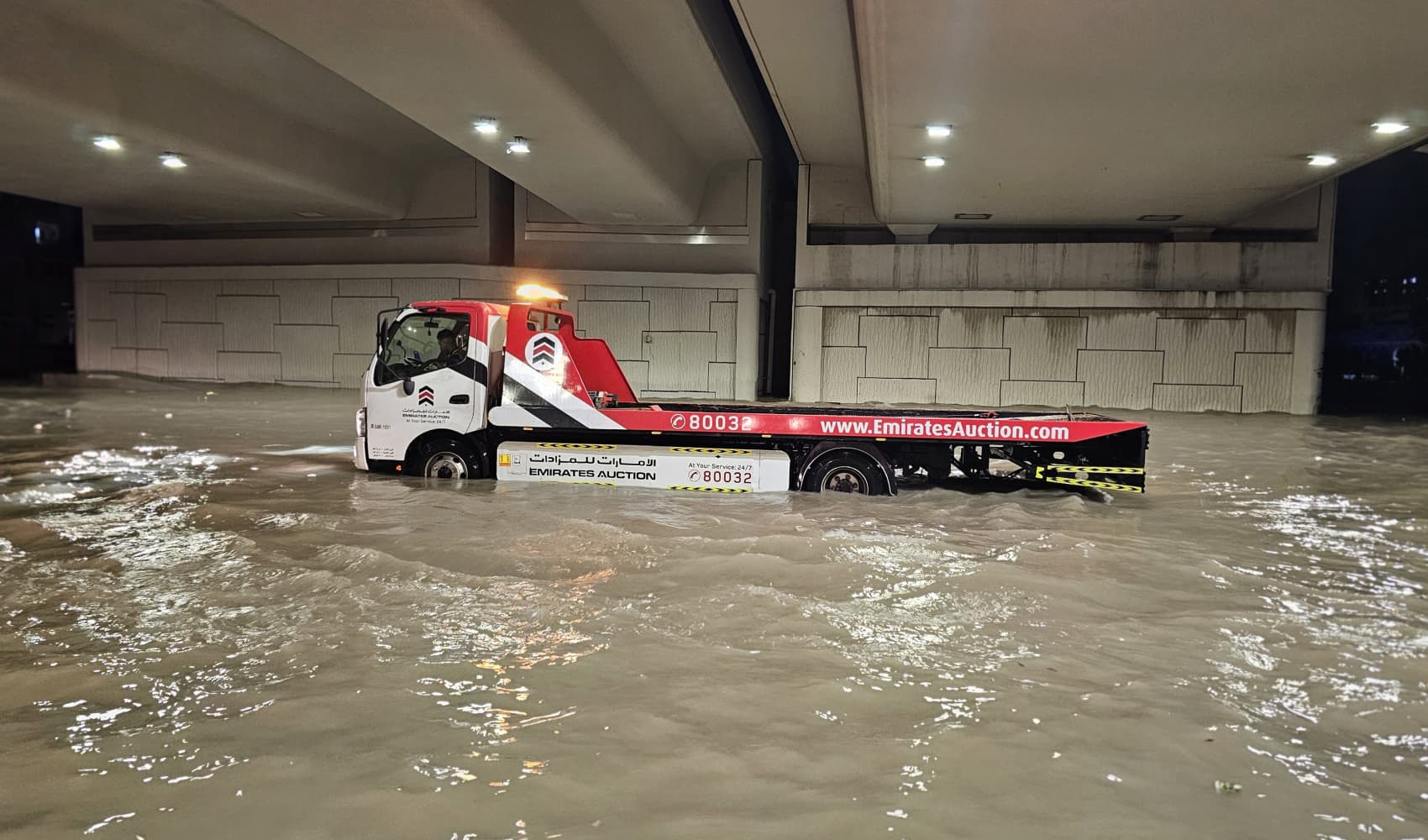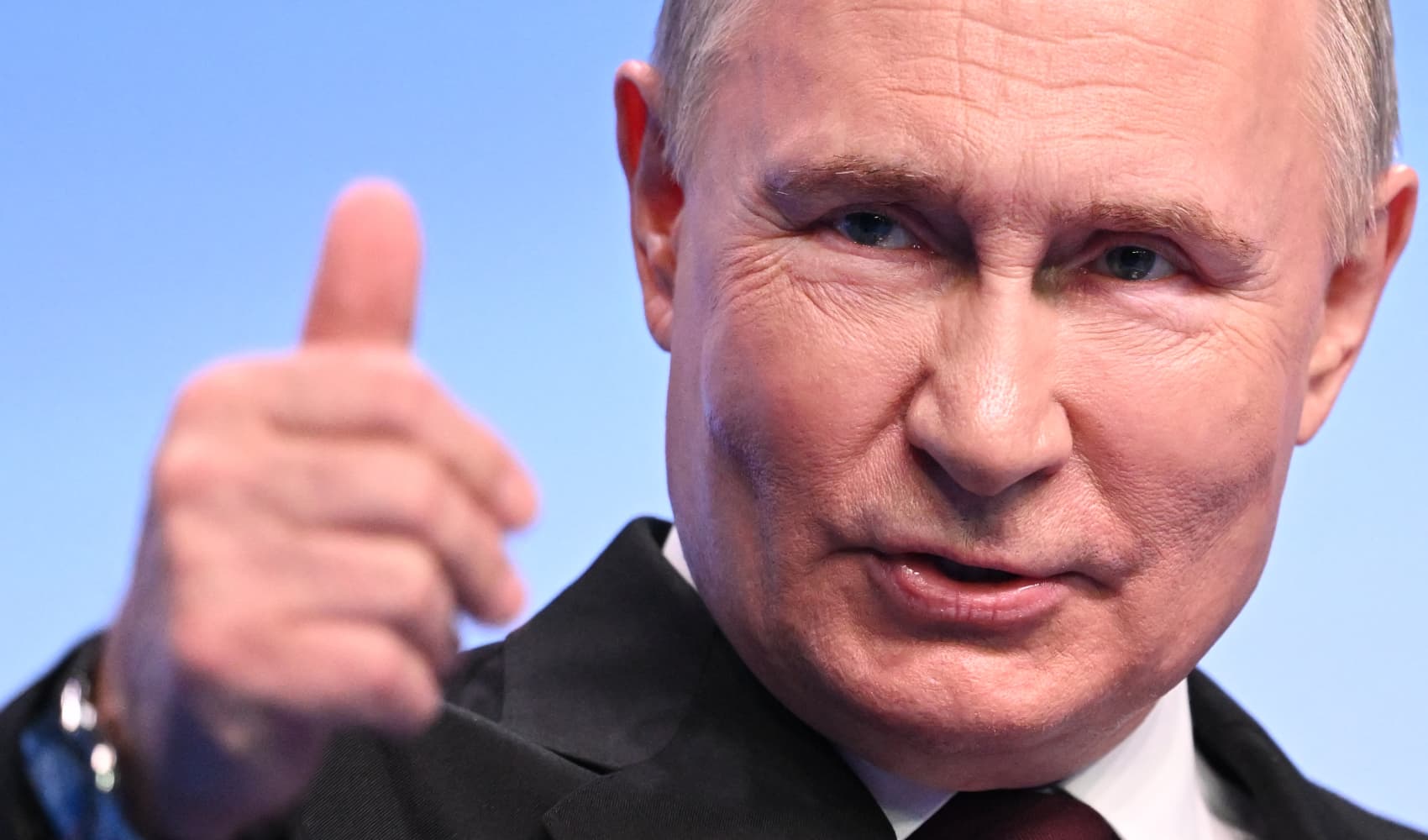
- Vice President Kamala Harris is set to be a featured at an event celebrating a $4.7 billion commitment toward helping minority-owned businesses and underrepresented communities.
- The funds will go toward assisting businesses and communities in the Capital Region, including in areas such as Washington, D.C., Richmond and Baltimore.
Vice President Kamala Harris on Wednesday will join a group that includes leaders of corporate giants to promote a $4.7 billion commitment to boosting minority-owned businesses and underrepresented communities in Washington, D.C., and surrounding areas.
Harris will speak at an event at Howard University where the Greater Washington Partnership, a nonprofit civic alliance, will unveil the five-year, multibillion-dollar pledge. The funds will go toward businesses and communities in the capital region, including to areas such as Washington D.C., Richmond and Baltimore.
Harris is an alumna of Howard, a prestigious historically Black university in Washington. Other Biden administration officials such as Commerce Secretary Gina Raimondo and Small Business Administrator Isabel Guzman will also appear at the event.
Get San Diego local news, weather forecasts, sports and lifestyle stories to your inbox. Sign up for NBC San Diego newsletters.
A White House official told CNBC in an email on Monday that Harris will "discuss how supporting community lenders will provide more access to capital for underserved entrepreneurs and build a more fair, efficient, and equitable economy." A spokesperson for the SBA told CNBC that Guzman will be speaking at the Wednesday event.
The gathering marks a new step by both corporate leaders and the Biden administration to aid minority-owned companies. Businesses and public officials made a wave of pledges to help communities of color after a racial justice reckoning sparked by the 2020 murder of George Floyd, and followed through on them with varying degrees of success.
Peter Scher, a vice chair at banking giant JPMorgan Chase and the chair of the Greater Washington Partnership board, told CNBC that Floyd's murder and the dislocation caused by the coronavirus pandemic led corporate and university members of the group to consider how to better help minority communities.
Money Report
"Between Covid's disproportionate impact on underserved communities and George Floyd becoming a reckoning for a lot of companies and communities about the need to do more to address inequities in regions, and the future of work, all of these factors became a powerful accelerator for our business partnership," Scher said on Monday.
Rosie Allen-Herring, president and CEO of United Way of the National Capital Area, said members wanted to move ahead with a real commitment rather than talk about it.
"As a member of the inclusive growth counsel, the conversations were really about no longer lip service but how do we make a true commitment to moving the needle on this tough challenge for us, not only as a region, but as a country," Allen-Herring, a member of the Greater Washington Partnership board, told CNBC in an interview.
Floyd, a Black man, was killed by former Minneapolis police officer Derek Chauvin nearly two years ago. Chauvin was sentenced to 22.5 years in prison after being found guilty of murder and manslaughter last year.
Floyd's death at the hands of police led to months of discussions about racial inequities in the U.S. economy, justice system and schools — among other areas — and what policymakers and businesses can do to reduce them.
The Greater Washington Partnership said that over a dozen corporations are contributing to its new effort. They include Amazon, JPMorgan Chase, Capital One, Howard University and Georgetown University.
The funds over five years will go in part toward procurement spending that could help minority-owned businesses, particularly companies run by Black and Latino people.
Other pieces of the massive investment will target wealth-building opportunities, including direct corporate investments in affordable housing. Another portion of the funds will target local Community Development Financial Institutions and Minority Depository Institutions. These financial and depository institutions are meant to help provide access to capital for underrepresented communities.
Andy Navarrete, Capital One's executive vice president and head of external affairs, gave details to their role in the massive investment.
"Alongside our Greater Washington Partnership peers, we are leveraging our collective scale and resources to provide access to capital for groups that have been historically underfunded; increase investment in Black and Hispanic-owned businesses; and break down structural barriers that persist for Black and Brown communities," Navarrete told CNBC in a statement on Monday.
Wayne A. I. Frederick, the President of Howard University, told CNBC in a statement late Monday that they're working with the Greater Washington Partnership in this effort.
"We are proud to join the Greater Washington Partnership in this collective effort to influence supplier diversity and minority business in the region," he said. "It is an honor to host this event at Howard University and forward this conversation alongside so many great business leaders."
A spokesperson for Georgetown referred CNBC on Monday to the university's previously announced effort to engage with diverse companies. An Amazon spokesperson pointed CNBC to the Amazon Housing Equity Fund and their over $124 million commitment to creating more than 1,000 affordable homes.
A representative for Raimondo did not return an email seeking comment.






